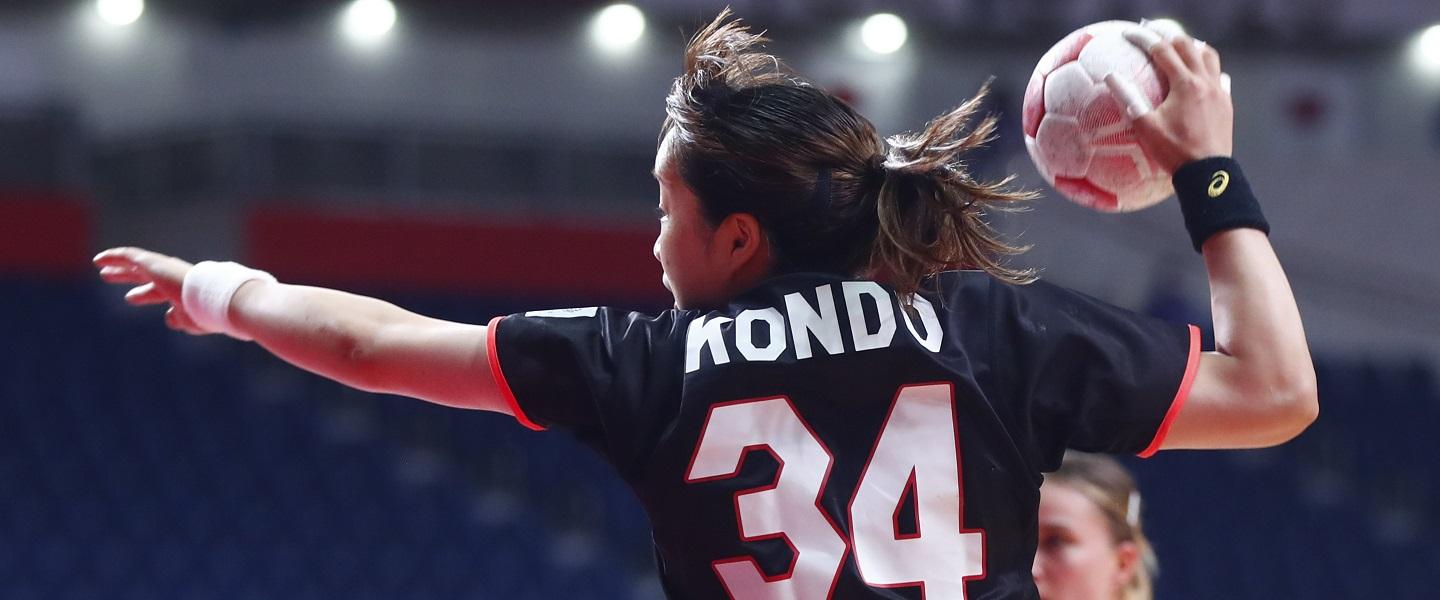A newly-minted Japan team set big ambitions
23 Nov. 2021

In preparation for hosting the Olympic Games Tokyo 2020, Japan were on home court at the last edition of the IHF Women’s World Championship, prompting a superb performance, which yielded their best finish in the competition since 1971. They dazzled their opponents with their free-flowing, fast paced handball, securing their second win against a European side in their history in the competition, a 37:20 drubbing of Romania.
Their ambitions were high after finishing 10th in the tournament they hosted, as bringing in a Danish coach, Ulrik Kirkely, looked to help Japan establish themselves as a powerhouse in both Asian and in world handball.
Yet, Tokyo 2020 did not bring the results that Japan desperately wanted, as the Asian side finished in last place, 12th, securing only one win in the group phase, 29:26 against Montenegro.
Therefore, it was back to the drawing board for the Japanese side, who did not renew Kirkely’s contract, instead opting for a local coach. After the team was led to second place at the 2021 AHF Asian Women’s Championship by Mikio Furuhashi, the baton was passed to Shigeo Kusumoto, who had previously led the Japanese women’s student handball team.
Kusumoto, who has been working in handball for more than four decades, has plenty of experience to oversee big changes in the side. Several players who donned the national team shirt in the past two major international competitions have been replaced, as Japan are preparing for a new dawn.
From the 35 players on the provisional list for Spain 2021, only nine of them have played more than 10 games for Japan, with experienced goalkeeper Sakura Kametani, who is plying her trade at French side ESBF Besancon, being the leader of the pack, with 62 games.
Indeed, Kusumoto went on the record to underline the team’s ambitions in the near future, with an Olympic Games Paris 2024 berth as the big objective in his tenure.
“Through the experience I gained in the last 30 years, I was able to build my own style thanks to many players. I want to demonstrate this experience in the national team.
“The team I want to build is a winning one, with an eye on Paris 2024,” said Kusumoto in his inaugural press conference as the Japanese coach.
Traditionally, the Republic of Korea have been the Asian powerhouse in the past decades, an argument also underlined by the 2021 AHF Asian Women’s Championship in September, when the Korean side took the gold medal with a clear 33:24 win against Japan in the final.
“The Republic of Korea, which will be a rival in the Olympic Asian qualifying, has historically been faster and more powerful than Japan, but I want to change that history,” added Kusumoto.
The first challenge of the new coach will be helping Japan qualify for the main round of the competition in a group also featuring Croatia, Brazil and Paraguay. If Japan proceed to the next phase of the competition, they will face three teams out of Spain, Austria, Argentina and PR of China.
“We all know what happened at Tokyo 2020, we had many injuries, so the previous coach could not have all the players at his disposal. We need polyvalent players, who can play on two positions,” concluded the new coach.
Placing 10th this time around will be difficult, especially as Japan’s opponents will bring plenty of experience to the table, yet a combative team like the Asian side should never be underestimated.
Key players: Sakura Kametani (goalkeeper), Asuka Fujita (right wing)
Qualification for Spain 2021: 18th AHF Asian Women’s Championship – 2nd place
History in tournament: 1962: 9th, 1965: 7th, 1971: 9th, 1973: 10th, 1975: 10th, 1986: 14th, 1995: 13-16th, 1997: 17th, 1999: 17th, 2001: 20th, 2003: 16th, 2005: 18th, 2007: 19th, 2009: 16th, 2011: 14th, 2013: 14th, 2015: 19th, 2017: 16th, 2019: 10th
Group at Spain 2021: Group G (Croatia, Japan, Brazil, Paraguay)

